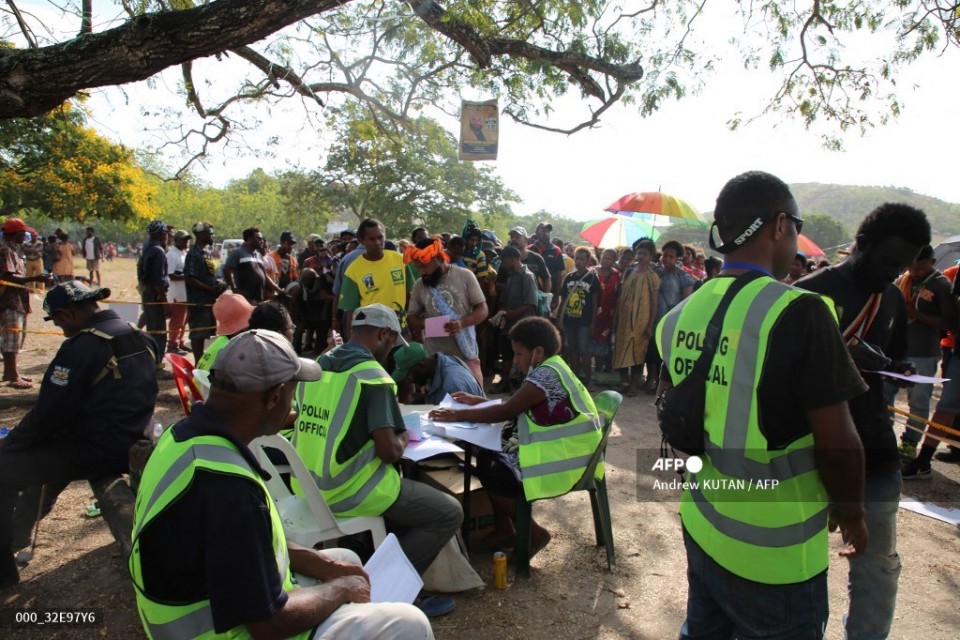
Port Moresby, Papua New Guinea | AFP
Vote counting in Papua New Guinea’s general elections was extended by a fortnight on Tuesday, as violence and destruction disrupted the already month-long poll.
The country’s governor general announced the extension, with the return of writs moving from July 29 to August 12, as he called for an end to attacks in an election marred by the “hijacking” of ballot boxes and at least a dozen deaths.
“I am appealing to everyone from the candidates, their supporters, scrutineers and elections officials to refrain from violence and allow the process to complete in an orderly and peaceful manner,” Governor General Bob Dadae said in a statement.
“Don’t wait till you are in Parliament to show leadership. Hindering and abetting violence and mayhem is not a sign of leadership, and those involved in such should not consider themselves leaders at all.”
He added that the decision to grant the extension would avoid a failed election which could trigger a potential rerun of the vote.
The move follows a brutal machete attack in the capital of Port Moresby on Sunday, which caused authorities to warn residents to stay home as troops were deployed to the streets.
In a politically motivated attack, a machete-wielding gang chased down two victims outside a counting centre, leaving one with a traumatic brain injury and another with an injured limb, doctors and police said.
About 10,000 police, army and corrections services personnel had already been mobilised for the vote, but they have struggled to maintain control.
Earlier this week, commonwealth election observers also condemned the violence and called for an “urgent review” of the voting process, noting many names were missing from electoral rolls and numerous allegations of bribery were reported.
“There was widespread public dissatisfaction with the accuracy of the common roll,” Commonwealth Observer Group Chairperson Baron Waqa said.
“We are concerned that this could have disenfranchised high numbers of eligible voters.”
During the last vote in 2017, Australian National University monitors documented more than 200 election-related killings and widespread “serious irregularities”.
Prime Minister James Marape is seeking another term in office in a vote dominated by disparate local concerns and patronage systems rather than party political ideology.
Results in areas of the country are trickling in, but many parliamentary seats have yet to be declared.
© Agence France-Presse








